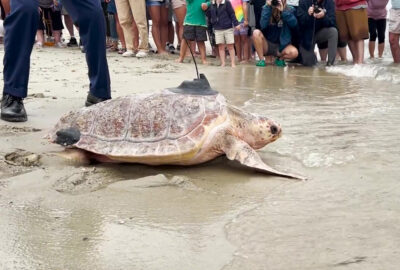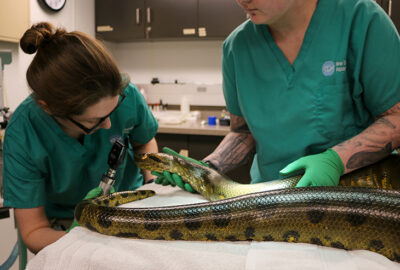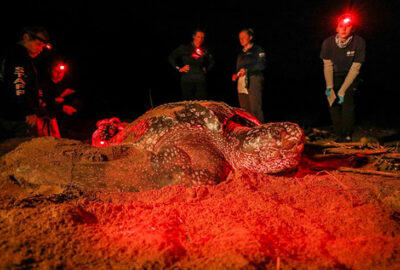A Safe Send-Off for Sea Turtles
Early on the morning of July 1, a small group of staff from the Aquarium’s Quincy Animal Care Center and volunteers from Mass Audubon’s Wellfleet Bay Wildlife Sanctuary gathered on Cape Cod’s West Dennis Beach to usher five rehabilitated Kemp’s ridley and two Loggerhead turtles back into the wild.
By New England Aquarium on Thursday, July 30, 2020


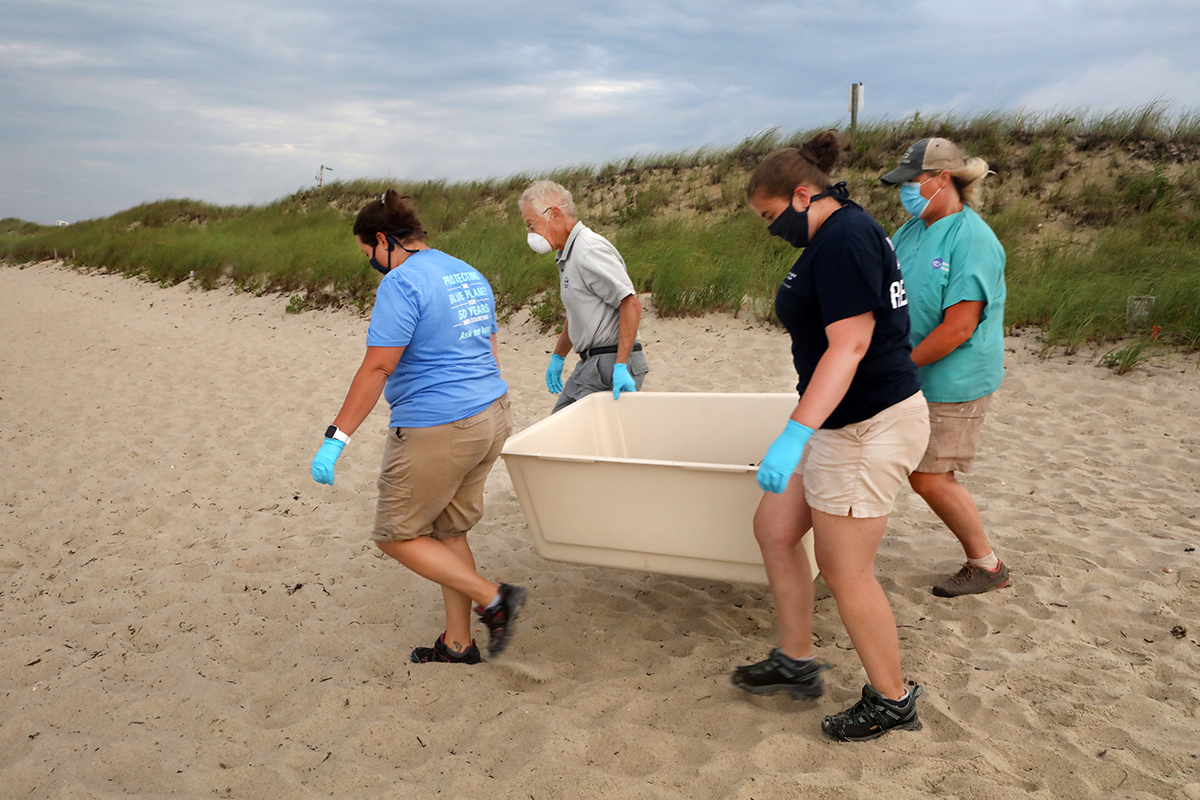
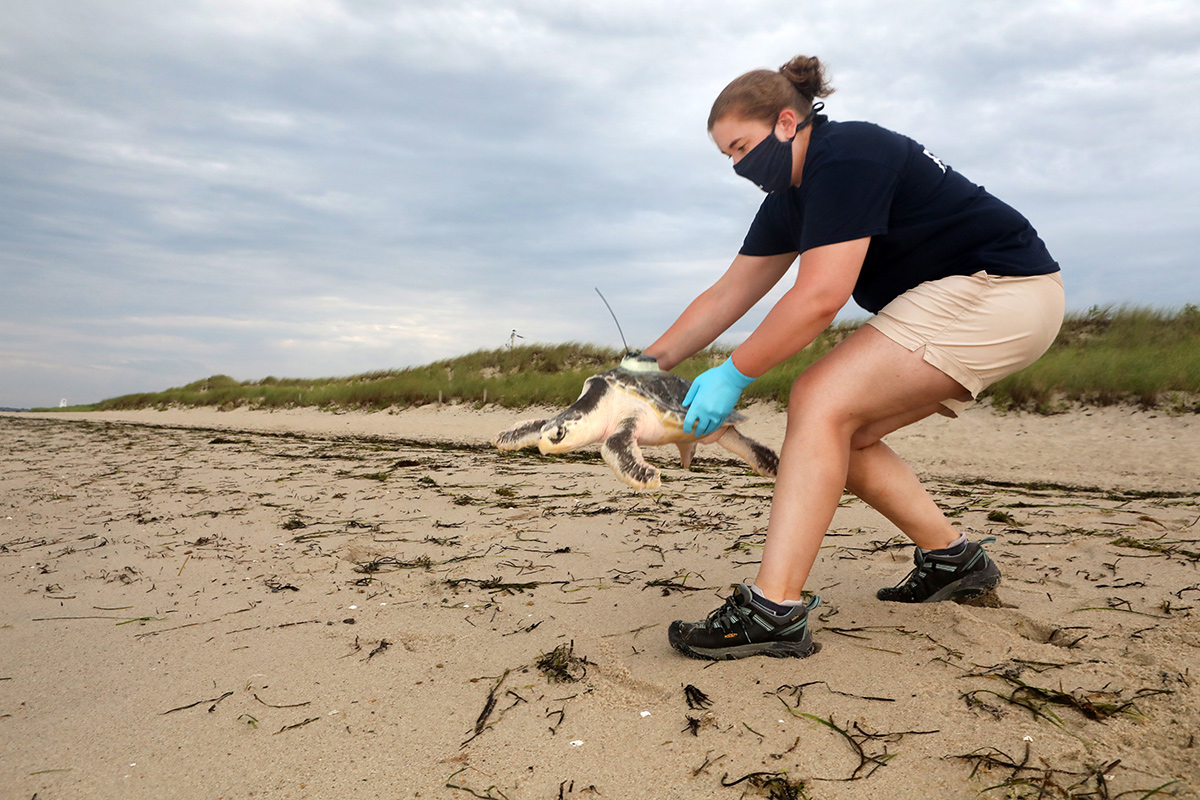
By John Shakespear
The first turtle release of the summer season was a joyful occasion, even if it was a slightly smaller and quieter affair than usual due to COVID-19 safety precautions.
“The releases are always the best days,” says Connie Merigo, director of the Aquarium’s Marine Animal Rescue Program. “These are animals who would have died from hypothermia if they hadn’t been found by Mass Audubon and sent to us. There’s nothing like seeing them go back into the wild. It’s such a hopeful feeling to think we’re able to make an impact for the sea turtle population.”
The Aquarium and Mass Audubon have worked together for the past 25 years to rescue and rehabilitate thousands of Kemp’s ridley, green, and loggerhead turtles who strand along New England’s coast. Kemp’s ridleys, the world’s most endangered sea turtle species, make up the majority of the animals we rehabilitate. Throughout the COVID-19 pandemic, our staff have increased safety precautions while continuing to nurse turtles back to healthy weight, strength, and electrolyte levels.
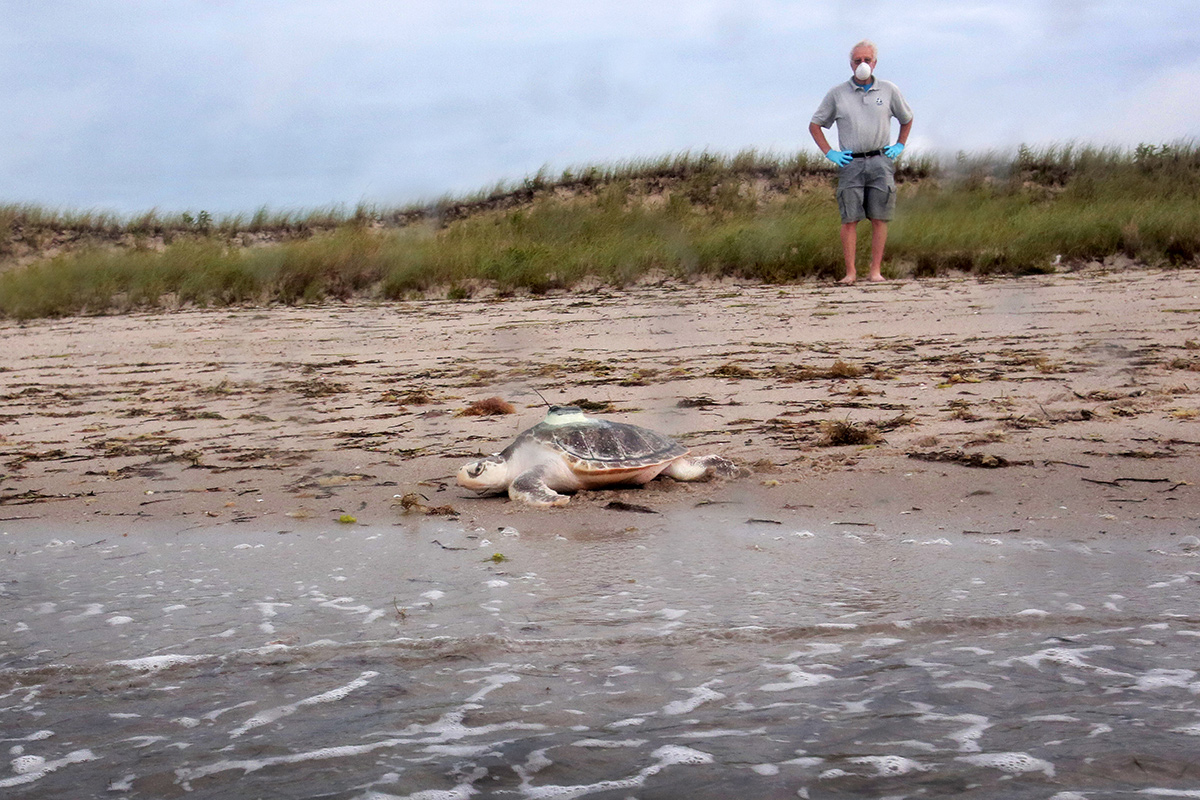
“We’re all wearing masks, and we’ve reduced the number of people in the rehab hospital,” Merigo says. “We’ve been able to keep everybody safe, thankfully.”
On July 7 and July 23, Merigo and members of her team made two return trips to Cape Cod (in separate vehicles!) to say bon voyage to two more Kemp’s ridley turtles and three more Loggerheads. Five of the loggerheads and one of the Kemp’s ridleys are outfitted with satellite tags so our researchers can gather valuable data and track their whereabouts, and we are already learning from the adventures of these six intrepid explorers.
“Five of them have stayed pretty close to where they were released, on the Nantucket Sound side of the cape,” says Dr. Kara Dodge, a research scientist at our Anderson Cabot Center for Ocean Life who studies sea turtle behavior. “To me, this suggests that there’s probably good forage in that part of the sound, and it’ll be interesting to see how long they remain there.”
Although social distancing measures meant that we couldn’t invite our valued volunteers to these releases, they were able to bid farewell to their favorite turtles via a special live Zoom session. Volunteers and interested Aquarium guests can also track the turtles’ progress below.
“People that worked with these turtles in the rehab setting know these individual turtles as individuals, so I think it can be a nice continuity for them to be able to follow along with those turtles and see where they end up,” Dodge says.
Sea Turtle Tracker

